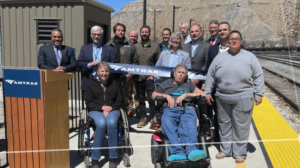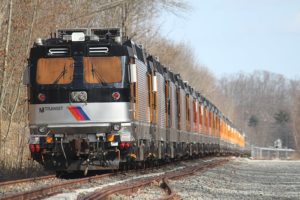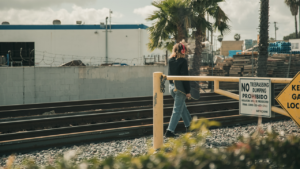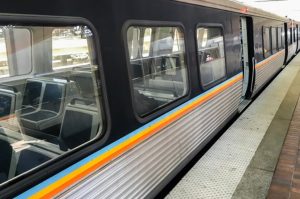Three named to top Metro-North operations posts; substation upgrade begins
Written by Jenifer Nunez, assistant editorMetropolitan Transportation Authority's Metro-North Railroad has named three to top leadership positions.
The railroad’s new president, Joseph Giulietti, appointed Glen Hayden to vice president of engineering, Michael Yaeger to chief mechanical officer and Kevin O’Connor to chief transportation officer.
“I am confident that this highly-experienced team will provide the leadership that Metro-North needs to refocus all its attention on safety, reliability and customer service and in the process rebuild its reputation for excellence,” Giulietti said.
Hayden will lead Metro-North’s Maintenance of Way Department, which is responsible for the integrity of the track and associated structures and will report directly to the president.
“An integral part of operating a safe railroad is ensuring that the railroad’s infrastructure is maintained to the highest standards and that the methods and procedures we use reflect the best practices of the industry at large,” Giulietti said. “Hayden brings 37 years of experience to this challenging position and I have every confidence in him.”
During the past 16 years, Hayden worked for Parsons Brinkerhoff, where he was responsible for planning and/or project management for a number of large, complex and critical transportation projects throughout the northeast. He spent much of his early career at Metro-North and its predecessor railroads, rising to the position of chief engineer.
Yaeger and O’Connor will report to Metro-North senior vice president operations, John Kesich.
Yaeger is responsible for maintenance of the railroad’s fleet of rail cars and work trains. He has spent 27 years at Metro-North in the Maintenance of Equipment Department – both in the areas of project planning and in maintenance operations.
O’Connor is responsible for the day-to -day operation of trains. He succeeds Assistant Vice President John McNulty, who is retiring this summer after 40 years at Metro-North.
In other Metro-North news, the railroad upgraded the power supply for the New Haven Line at its Mount Vernon East substation to provide additional redundancy and increase capacity.
The railroad replaced four, 35-year-old transformers with two new ones that will ensure reliability to handle additional power loads and allow electricity generated by the brakes of the railroad’s new fleet of M-8 rail cars to be fed back into the power grid.
In order to accommodate this installation and minimize the risk of service disruption, Metro-North, Con Edison and the New York Power Authority developed a contingency plan to assure continued power service to the Mount Vernon substation and submitted it to the New York State Department of Public Service for an independent, third party review and approval.
The plan draws upon work already completed in the overall improvement of the power supply to the New Haven Line. One new transformer was installed at Mount Vernon last fall and is adequate to serve the power needs of the line. The second new transformer is being installed this weekend and connecting it will take about a month.
Last month, a similar upgrade was completed, doubling of capacity at the Cos Cob West substation. It is now possible to deliver power to the New York segment of the New Haven Line through an upgraded tie system at the Harrison and Rye switching substations. These upgrades will serve as a third supply source in the unlikely event that power is lost at the Mount Vernon Substation during installation of the east transformer.
“The contingency plan is sound and is backed by this new Harrison tie system,” said Giulietti. “Replacing this old substation is an important step in improving power supply to the New Haven Line overall.”
While these improvements reduce the possibility of a full power outage, if that did occur, it will take up to two hours to activate the tie. However, once the tie is activated, Metro-North will be able to operate regular train service through the area with some delays possible.
Metro-North hired the New York Power Authority to design and replace the existing substation, including a new breaker house at Pelham, new 27 kilovolt feeders, new switchgear at New Rochelle and a new power supply station for the signal system at the same location.
The substation sits in a large yard surrounded by a chain link fence that will be replaced with a more secure wall as part of the $51-million project.
When completed, the project will enable Metro-North to use the regenerative braking technology on its newest rail cars to feed power back into the catenary system each time the cars go into braking mode. This excess electricity reduces Metro-North’s overall power demand.





